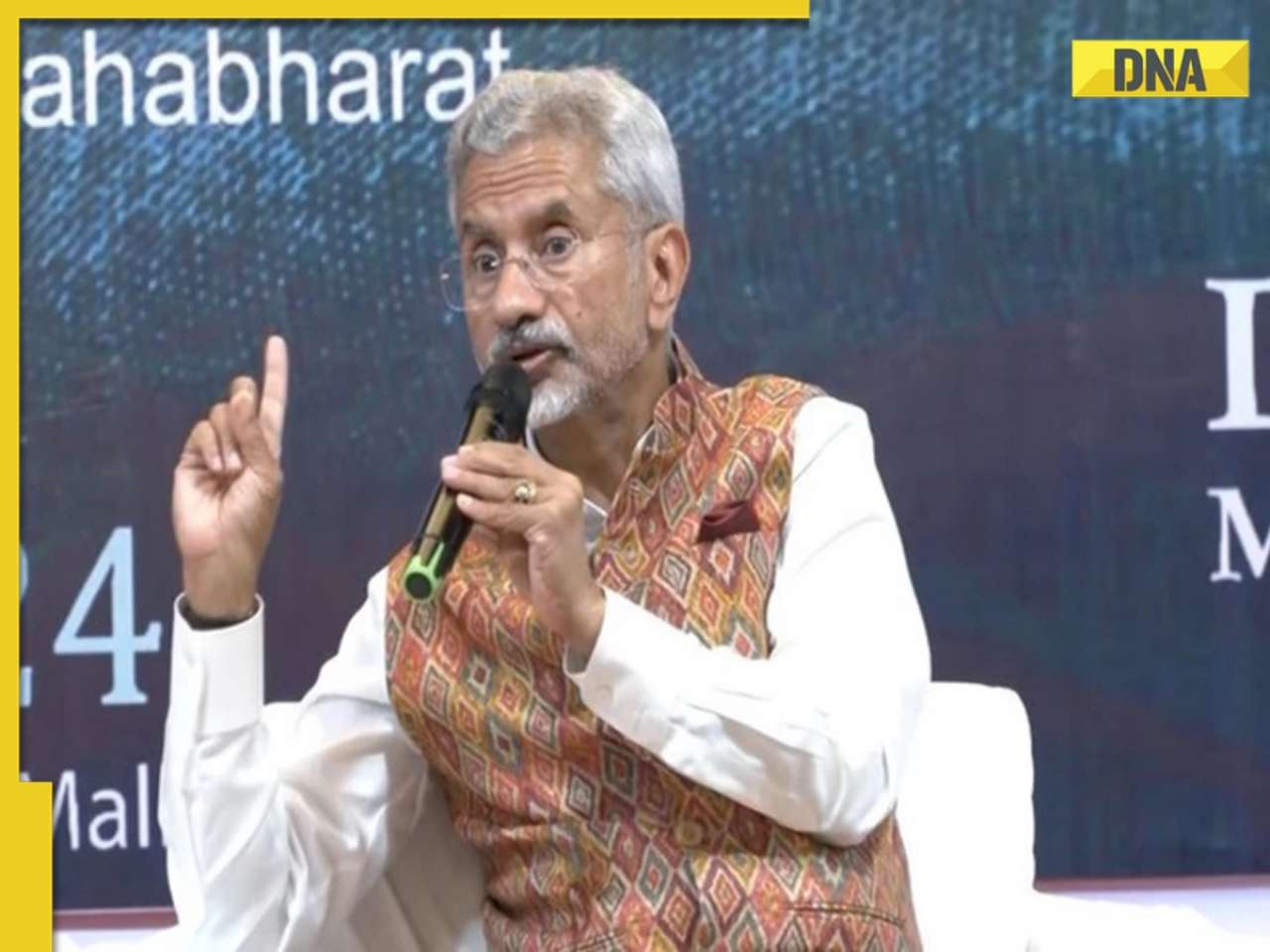City based gastroenterologists say that at least eight to 10 people from the city undergoes bariatric surgery every month
Bariatric surgery is an option for people dealing with obesity
Bariatric surgery is in the news once again because of 23-year-old S Rajasekar from Chennai. The youngster who weighed 200 kgs before laproscopic sleeve gastrectomy, a form of bariatric surgery where 85 per cent of the stomach is removed, died a few days after the surgery despite responding well.
Doctors said it could have been pre- surgery complications that caused his death. Even as more people in the city are showing keen interest in bariatric surgery and are going under the knife for a healthier tomorrow, DNA speaks to experts to get a low down on the procedure and its possible risks.
High Demand in Bangalore: City based gastroenterologists say that at least eight to 10 people from the city undergoes bariatric surgery every month. Most cases however are not for cosmetic reasons. The goals of these procedures are often weight loss, improvement of hypertension, resolution/ significant improvement in diabetes (Type 2), improvement in arthritis and resolution of sleep apnea among the many benefits.
“A better appearance is a bonus and not the primary goal of doing this procedure. Bariatric surgery is not a shoppers’ stop for every patient suffering from obesity,” says
Dr Srikanth, consultant surgical gastroenterology of Manipal Hospital.
In India, there are limited centres in Delhi, Mumbai, Chennai, Hyderabad and Bangalore where bariatric surgery is performed.
“Bangalore, known for its medi tourism, is attracting lots of international patients for bariatric surgery. Foreigners prefer Bangalore, as in the west, the approximate cost of this surgery is around $36,000, while they can get it done within $8,000 and $10,000 within the city,” says Dr Saurabh Mishra, gastroenterologist and bariatric surgeon, New Apollo Hospital.
What the surgery entails?
Doctors say that bariatric surgery doesn’t mean a 100 per cent excess weight reduction. “There can be a loss of 85 per cent of the excess weight through bariatric surgery. However, around 50 per cent of that 85 per cent excess weight is lost within the first 5 to 6 months of the surgery and remaining 50 per cent takes another 1 to 2 years to reduce,” said Dr Srikanth,
There are two types of bariatric procedures commonly performed: Laparoscopic adjustable gastric band and Laparoscopic gastric bypass procedure. As both these procedures are now done through key-hole surgery, it typically requires hospitalisation of three to four days. However, it takes around 15 days for the patient to get accustomed with the new lifestyle post surgery and to get back to the normal life.
What are the possible risks?
Although recommended by doctors for those with Body Mass Index (BMI) of over 35, this surgery has sometimes been considered risky even though it produces results and has been known to help those with morbid obesity and those with life threatening conditions. “Any surgery done on obese people involves certain risks. Obese people suffer from hypertension and diabetes and their morphology is different. They are more susceptible to infection,” says Dr Misra.
Also, there’s a possibility that the patient may gain weight again. Post Operative care is crucial. Due to the sudden weight loss post bariatric surgery, the patient tends to feel week and make minimum movements. This leads to clot formation in the leg that travels up to the brain and chest causing sudden death, explains the doctor. “Thus enough time should be given to the patients before the surgery, educating them about the lifestyle modifications and diet regimes. They need to keep their body hydrated all the time, adds Dr Misra.
Bariatric surgery requires both time and effort from the patient to achieve the desired results, he says. “Patients need to follow the dietary regime as advised by the dietician, apart from physical activities like at least 45 minutes of walking, some gymming or aerobics,” says Dr Srikanth.
![submenu-img]() Meet IIT-JEE topper with AIR 1, son of government school teachers, he went on to pursue...
Meet IIT-JEE topper with AIR 1, son of government school teachers, he went on to pursue...![submenu-img]() Salman Khan house firing case: One more Lawrence Bishnoi gang member arrested by Mumbai Police
Salman Khan house firing case: One more Lawrence Bishnoi gang member arrested by Mumbai Police ![submenu-img]() Mukesh Ambani to host Anant-Radhika's second pre-wedding function: Trip to start from Italy with 800 guests and end in..
Mukesh Ambani to host Anant-Radhika's second pre-wedding function: Trip to start from Italy with 800 guests and end in..![submenu-img]() Driver caught on camera running over female toll plaza staff on Delhi-Meerut expressway, watch video
Driver caught on camera running over female toll plaza staff on Delhi-Meerut expressway, watch video![submenu-img]() 'If you come and do something here...': EAM S Jaishankar on India's 'message' against terrorism
'If you come and do something here...': EAM S Jaishankar on India's 'message' against terrorism![submenu-img]() Meet IIT-JEE topper with AIR 1, son of government school teachers, he went on to pursue...
Meet IIT-JEE topper with AIR 1, son of government school teachers, he went on to pursue...![submenu-img]() TN 11th Result 2024: TNDGE Tamil Nadu HSE (+1) result declared, direct link here
TN 11th Result 2024: TNDGE Tamil Nadu HSE (+1) result declared, direct link here![submenu-img]() Meet doctor who cracked UPSC exam with AIR 9 but didn’t became IAS due to…
Meet doctor who cracked UPSC exam with AIR 9 but didn’t became IAS due to…![submenu-img]() TN 11th Result 2024 to be declared today; know how to check
TN 11th Result 2024 to be declared today; know how to check![submenu-img]() Meet man who worked as coolie, studied from railway's WiFi, then cracked UPSC exam to become IAS, secured AIR...
Meet man who worked as coolie, studied from railway's WiFi, then cracked UPSC exam to become IAS, secured AIR...![submenu-img]() DNA Verified: Is CAA an anti-Muslim law? Centre terms news report as 'misleading'
DNA Verified: Is CAA an anti-Muslim law? Centre terms news report as 'misleading'![submenu-img]() DNA Verified: Lok Sabha Elections 2024 to be held on April 19? Know truth behind viral message
DNA Verified: Lok Sabha Elections 2024 to be held on April 19? Know truth behind viral message![submenu-img]() DNA Verified: Modi govt giving students free laptops under 'One Student One Laptop' scheme? Know truth here
DNA Verified: Modi govt giving students free laptops under 'One Student One Laptop' scheme? Know truth here![submenu-img]() DNA Verified: Shah Rukh Khan denies reports of his role in release of India's naval officers from Qatar
DNA Verified: Shah Rukh Khan denies reports of his role in release of India's naval officers from Qatar![submenu-img]() DNA Verified: Is govt providing Rs 1.6 lakh benefit to girls under PM Ladli Laxmi Yojana? Know truth
DNA Verified: Is govt providing Rs 1.6 lakh benefit to girls under PM Ladli Laxmi Yojana? Know truth![submenu-img]() Remember Harsh Lunia? Just Mohabbat child star, here's how former actor looks now, his wife is Bollywood's popular...
Remember Harsh Lunia? Just Mohabbat child star, here's how former actor looks now, his wife is Bollywood's popular...![submenu-img]() Mother's Day 2024: Bollywood supermoms who balance motherhood, acting, and run multi-crore businesses
Mother's Day 2024: Bollywood supermoms who balance motherhood, acting, and run multi-crore businesses![submenu-img]() Rocky Aur Rani's Golu aka Anjali Anand shocks fans with drastic weight loss without gym, says fitness secret is...
Rocky Aur Rani's Golu aka Anjali Anand shocks fans with drastic weight loss without gym, says fitness secret is...![submenu-img]() In pics: Ram Charan gets mobbed by fans during his visit to Pithapuram for ‘indirect campaign’ for uncle Pawan Kalyan
In pics: Ram Charan gets mobbed by fans during his visit to Pithapuram for ‘indirect campaign’ for uncle Pawan Kalyan![submenu-img]() Streaming This Week: Yodha, Aavesham, Murder In Mahim, Undekhi season 3, latest OTT releases to binge-watch
Streaming This Week: Yodha, Aavesham, Murder In Mahim, Undekhi season 3, latest OTT releases to binge-watch![submenu-img]() Haryana Political Crisis: Will 3 independent MLAs support withdrawal impact the present Nayab Saini led-BJP government?
Haryana Political Crisis: Will 3 independent MLAs support withdrawal impact the present Nayab Saini led-BJP government?![submenu-img]() DNA Explainer: Why Harvey Weinstein's rape conviction was overturned, will beleaguered Hollywood mogul get out of jail?
DNA Explainer: Why Harvey Weinstein's rape conviction was overturned, will beleaguered Hollywood mogul get out of jail?![submenu-img]() What is inheritance tax?
What is inheritance tax?![submenu-img]() DNA Explainer: What is cloud seeding which is blamed for wreaking havoc in Dubai?
DNA Explainer: What is cloud seeding which is blamed for wreaking havoc in Dubai?![submenu-img]() DNA Explainer: What is Israel's Arrow-3 defence system used to intercept Iran's missile attack?
DNA Explainer: What is Israel's Arrow-3 defence system used to intercept Iran's missile attack?![submenu-img]() Salman Khan house firing case: One more Lawrence Bishnoi gang member arrested by Mumbai Police
Salman Khan house firing case: One more Lawrence Bishnoi gang member arrested by Mumbai Police ![submenu-img]() Meet actress, who got rejected for her looks, had no hit for 15 years; later beat Alia, Deepika, Katrina at box office
Meet actress, who got rejected for her looks, had no hit for 15 years; later beat Alia, Deepika, Katrina at box office![submenu-img]() Abdu Rozik breaks silence on his wedding announcement being called ‘publicity stunt’: ‘The whole world is…’
Abdu Rozik breaks silence on his wedding announcement being called ‘publicity stunt’: ‘The whole world is…’![submenu-img]() Meet actress who made debut with Salman Khan, had super flop career, then got TB, now lives in chawl, runs..
Meet actress who made debut with Salman Khan, had super flop career, then got TB, now lives in chawl, runs..![submenu-img]() Meet actress who worked with Naseeruddin Shah, sister of popular models, is now getting trolled on social media for..
Meet actress who worked with Naseeruddin Shah, sister of popular models, is now getting trolled on social media for..![submenu-img]() Driver caught on camera running over female toll plaza staff on Delhi-Meerut expressway, watch video
Driver caught on camera running over female toll plaza staff on Delhi-Meerut expressway, watch video![submenu-img]() Delhi man takes 200 flights in 110 days, steals lakhs worth of jewelry from passengers
Delhi man takes 200 flights in 110 days, steals lakhs worth of jewelry from passengers![submenu-img]() Viral video: Man makes paratha with 'diesel', internet reacts
Viral video: Man makes paratha with 'diesel', internet reacts![submenu-img]() Viral video of 'black jalebi' leaves internet in shock; netizens say 'hey bhagwan...'
Viral video of 'black jalebi' leaves internet in shock; netizens say 'hey bhagwan...'![submenu-img]() Real-life Bambi and Thumper? Adorable deer and rabbit video melts hearts online
Real-life Bambi and Thumper? Adorable deer and rabbit video melts hearts online
























































)
)
)
)
)
)